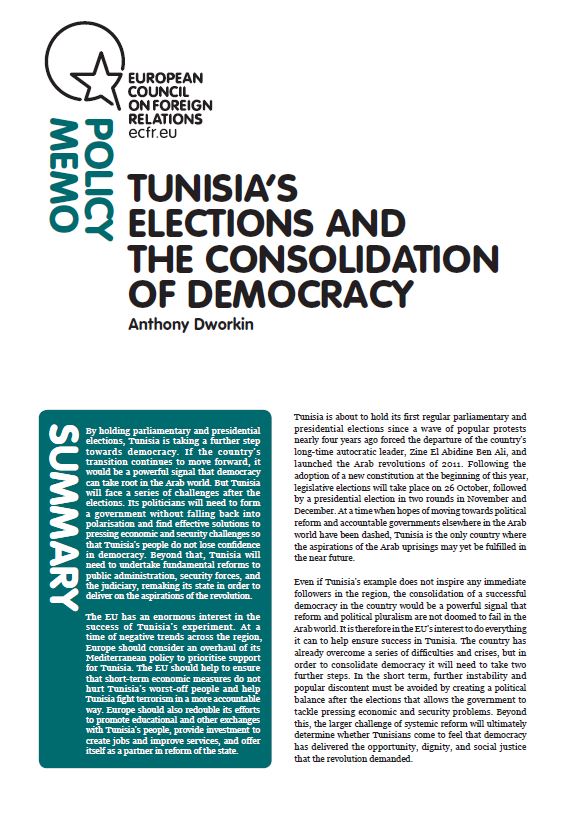Tunisia’s elections and the consolidation of democracy
Europe should consider an overhaul of its Mediterranean policy to prioritise support for Tunisia
Tunisia’s parliamentary elections are a significant step forward for the country’s transition. With hopes of democratic reform after the 2011 Arab uprisings dashed across the rest of the Middle East, Tunisia still offers hope of a genuine transition to democracy. But to consolidate democracy after this autumn’s elections, the country will still need to overcome further challenges.
In this policy paper, ECFR's Senior Policy Fellow Anthony Dworkin explores the next steps to consolidate democracy in Tunisia. He outlines how the country’s politicians must show that they can form an effective government and avoid the polarisation that almost derailed the transition last year. Then they must show that this government can deal with the country’s economic problems and security threats so that the Tunisian people do not feel that democracy has only made their living conditions worse.
Anthony Dworkin warns that a low turnout for the vote would be a warning sign of political disaffection. Beyond that, Tunisia will also have to reform its state. It will need to undertake fundamental reforms to public administration, the security forces and the judiciary in order to deliver on the aspirations of the revolution and overcome potential resistance from opponents of change.
Anthony Dworkin points out that the EU has an enormous interest in the success of Tunisia’s experiment. He suggests that, at a time of negative trends across the region, Europe should consider an overhaul of its Mediterranean policy to prioritise support for Tunisia by:
- Helping to ensure that short-term economic measures do not hurt Tunisia’s worst-off people
- Helping Tunisia fight terrorism in a more accountable way
- Redoubling its efforts to promote educational and other exchanges with Tunisia’s people
- Providing investment to create jobs and improve services
- Offering itself as a partner in reform of the state
“Only by instilling real change among the old guard who still inhabit state institutions can Tunisia deliver on the aspirations that drove its people to revolution.”
The European Council on Foreign Relations does not take collective positions. ECFR publications only represent the views of their individual authors.



